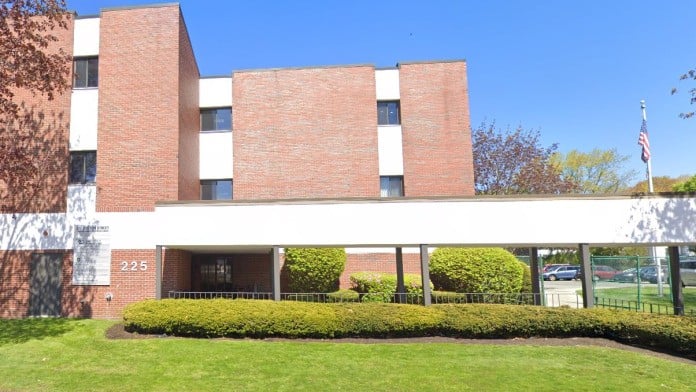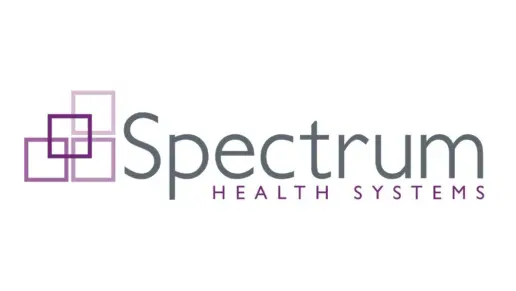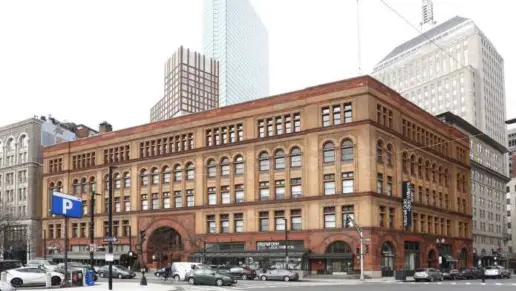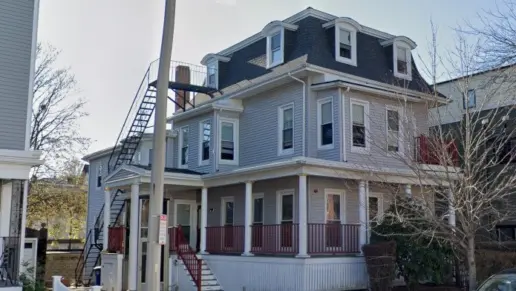Visiting this clinic has been the worst decision I have made in my life, the doctor who treated me was rude, the only thing he knows how to do is to dispute. Being in this place was a waste of time, the service they offer is unacceptable, no one deserves to be treated that w ...
About Lynn VA Clinic
Lynn VA Clinic is a community focused outpatient facility in Lynn, Massachusetts. Their location makes it easy for vets to access treatment for various health concerns. If you’re coming from Boston, it’ll take you 25 to 30 minutes via MA-1A North or US-1 North. Onsite parking and wheelchair access are available.
The area is well-served by the MBTA bus routes as well. This makes it easy for vets from nearby Revere, Saugus and Swampscott to access the facility. There’s even a shuttle service between this clinic and VA Bedford. You may also benefit from transportation aid to and from the clinic if you’re eligible.
Lynn VA Clinic offers primary care and various specialty health services. This includes mental health support, smoking and tobacco cessation and telehealth services. Telehealth is a convenient way to access healthcare here. You can undergo medical checkups, attend therapy and coordinate care with your provider virtually.
They support both video conferencing and store-and-forward telehealth. The latter enables you to securely send or receive your health information to or from experts at VA facilities. Telehealths are readily super comfy and even save on costs.
The facility can help you and your dependents heal from substance use and other behavioral challenges. This includes common conditions like depression, PTSD and anxiety. Most vets struggle with both substance use and mental issues at the same time. This is known as dual diagnosis. This facility has experts who can help you handle that as well.
Navigating substance use and related issues is not easy. The facility strives to ensure you’re not alone in your healing journey. They provide highly confidential and personalized outpatient therapy that facilitates lasting healing. Adopting a personalized approach is important because everyone’s path to recovery is unique.
Your care plan is created after a thorough evaluation or assessment. This forms the basis of your treatment supports involving group and individual therapy. The sessions uses evidence based techniques to help you tackle emotional issues contributing to your substance use. They equip you with practical skills to manage triggers and prevent relapse. Your treatment plan may also involve medication assisted treatment for opioid addiction. This means using meds to manage withdrawal symptoms and cravings.
Their smoking and tobacco cessation is a unique program that supports vets who are struggling to quit smoking. The program aims to support optional nicotine replacement therapy prescribed by your primary care doctor. You may receive meds approved by the FDA to manage nicotine withdrawal and the urge to smoke.
They back this up with in person or phone counseling to deliver the best outcomes. You can also receive individual counseling and other recovery strategies via their Tobacco Cessation Quitline. These services can really help you quit smoking and stay tobacco-free over time.
Their wraparound services can include connecting you to community resources within the VA system to support your lasting healing. These resources may include housing, employment opportunities and medical care. You pay for your treatment here through Medicaid, Medicare and Tricare. Financial aid is available if eligible.
Latest Reviews
Rehab Score
Gallery

Location
Other Forms of Payment
Military members, veterans, and eligible dependents have access to specific insurance programs that help them get the care they need. TRICARE and VA insurance can help you access low cost or no cost addiction and mental health treatment. Programs that accept military insurance often have targeted treatment focused on the unique challenges military members, veterans, and their families face.
Medicaid is a state based program that helps lower-income individuals and families pay for healthcare. Medicaid covers addiction treatment so those enrolled can use their coverage to pay for rehab. When a program accepts Medicaid the client often pays very little or nothing out of their own pocket.
Medicare is a federal program that provides health insurance for those 65 and older. It also serves people under 65 with chronic and disabling health challenges. To use Medicare for addiction treatment you need to find a program that accepts Medicare and is in network with your plan. Out of pocket costs and preauthorization requirements vary, so always check with your provider.
Sliding scale payments are based on a client's income and family size. The goal is to make treatment affordable to everyone. By taking these factors into account, addiction recovery care providers help ensure that your treatment does not become a financial burden to you or your family, eliminating one barrier to care.
Self-pay involves paying for treatment out of your own pocket. You can use savings or credit, get a personal loan, or receive help from family and friends to fund your treatment. If you don't have insurance or your insurance plan doesn't cover a specific program, self-pay can help ensure you still get the care you need.
Private insurance refers to any kind of healthcare coverage that isn't from the state or federal government. This includes individual and family plans offered by an employer or purchased from the Insurance Marketplace. Every plan will have different requirements and out of pocket costs so be sure to get the full details before you start treatment.
Addiction Treatments
Levels of Care
Treatments
Many of those suffering from addiction also suffer from mental or emotional illnesses like schizophrenia, bipolar disorder, depression, or anxiety disorders. Rehab and other substance abuse facilities treating those with a dual diagnosis or co-occurring disorder administer psychiatric treatment to address the person's mental health issue in addition to drug and alcohol rehabilitation.
Mental health rehabs focus on helping individuals recover from mental illnesses like bipolar disorder, clinical depression, anxiety disorders, schizophrenia, and more. Mental health professionals at these facilities are trained to understand and treat mental health issues, both in individual and group settings.
Programs




Clinical Services
Cognitive behavioral therapy (CBT) to help individuals understand the relationship between thoughts, emotions, and behaviors, learn new patterns of thinking, and practice new positive behaviors (relaxation techniques, using calming tapes to improve sleep, exercising, or socializing with friends).
Whether a marriage or other committed relationship, an intimate partnership is one of the most important aspects of a person's life. Drug and alcohol addiction affects both members of a couple in deep and meaningful ways, as does rehab and recovery. Couples therapy and other couples-focused treatment programs are significant parts of exploring triggers of addiction, as well as learning how to build healthy patterns to support ongoing sobriety.
Creativity is inherently healing, and can help those in recovery express thoughts or feelings they might not otherwise be able to. Creative arts therapy can include music, poetry/writing, painting, sculpting, dance, theater, sandplay, and more. Unlike traditional art, the final product matters far less than the experience of creation and expression itself.
Eating disorders include anorexia, bulimia, binge eating, and dysfunctional eating patterns. Many psychologists and other mental health professionals consider eating disorders to be food addictions, meaning food is being used in an addictive way (similar to drug or alcohol addiction). Certain substance abuse treatment programs will have treatment for eating disorders as one of the services offered. An eating disorder may also present as a co-occuring disorder or dual diagnosis alongside drug and alcohol addiction.
Experiential therapy is a form of therapy in which clients are encouraged to surface and work through subconscious issues by engaging in real-time experiences. Experiential therapy departs from traditional talk therapy by involving the body, and having clients engage in activities, movements, and physical and emotional expression. This can involve role-play or using props (which can include other people). Experiential therapy can help people process trauma, memories, and emotion quickly, deeply, and in a lasting fashion, leading to substantial and impactful healing.
EMDR is a therapeutic modality originally developed to help process trauma. In an EMDR session, a patient is prompted to undergo eye movements that mimic those of REM sleep. This is accomplished by watching a therapist's finger move back and forth across, or following a bar of light. The goal is repetitive sets of eye movements that help the brain reprocess memory, which can significantly reduce the intensity of remembered traumatic incidents. Associated memories can heal simultaneously, leaving patients significantly calmer, more stable, and more emotionally relaxed.
VA offers family services for Veterans and their family members. These include family education, brief problem-focused consultation, family psycho-education, and marriage and family counseling. Family education provides families with the information they need to partner with the treatment team and support the Veterans’ recovery.
Group therapy is any therapeutic work that happens in a group (not one-on-one). There are a number of different group therapy modalities, including support groups, experiential therapy, psycho-education, and more. Group therapy involves treatment as well as processing interaction between group members.
In individual therapy, a patient meets one-on-one with a trained psychologist or counselor. Therapy is a pivotal part of effective substance abuse treatment, as it often covers root causes of addiction, including challenges faced by the patient in their social, family, and work/school life.
Life skills trainings involve all the skills a person must have in order to function successfully in the world. These include time management, career guidance, money management, and effective communication. Truly successful addiction recovery is based on the ability to not only live substance-free, but to thrive. Life skills teaches the practical necessities of functioning in society, which sets clients up for success in life, and therefore sobriety.
Motivational Interviewing (MI) is a clinical approach to helping people with substance abuse issues and other conditions shift behavior in positive ways. It is more goal-oriented than traditional psychotherapy, as MI counselors directly attempt to get clients to consider making behavioral change (rather than wait for them to come to conclusions themselves). Its primary purpose is to resolve ambivalence and help clients become able to make healthy choices freely.
Nicotine Replacement Therapy (NRT) is a way of getting nicotine into the bloodstream without smoking. It uses products that supply low doses of nicotine to help people stop smoking. The goal of therapy is to cut down on cravings for nicotine and ease the symptoms of nicotine withdrawal.
Nutrition therapy, aka medical nutrition therapy (MNT), is a way of treating physical, emotional, and medical conditions through diet. Specific dietary plans are designed by professional nutritionists or registered dietitians, and patients follow them in order to positively affect their physical and mental health.
Trauma therapy addresses traumatic incidents from a client's past that are likely affecting their present-day experience. Trauma is often one of the primary triggers and potential causes of addiction, and can stem from child sexual abuse, domestic violence, having a parent with a mental illness, losing one or both parents at a young age, teenage or adult sexual assault, or any number of other factors. The purpose of trauma therapy is to allow a patient to process trauma and move through and past it, with the help of trained and compassionate mental health professionals.
Amenities
-
Private Setting
Accreditations

The Commission on Accreditation of Rehabilitation Facilities (CARF) is a non-profit organization that specifically accredits rehab organizations. Founded in 1966, CARF's, mission is to help service providers like rehab facilities maintain high standards of care.
CARF Accreditation: Yes

The Joint Commission, formerly known as JCAHO, is a nonprofit organization that accredits rehab organizations and programs. Founded in 1951, the Joint Commision's mission is to improve the quality of patient care and demonstrating the quality of patient care.
Joint Commission Accreditation: Yes
Contact Information
225 Boston Road
Suite 107
Lynn, MA 01904


